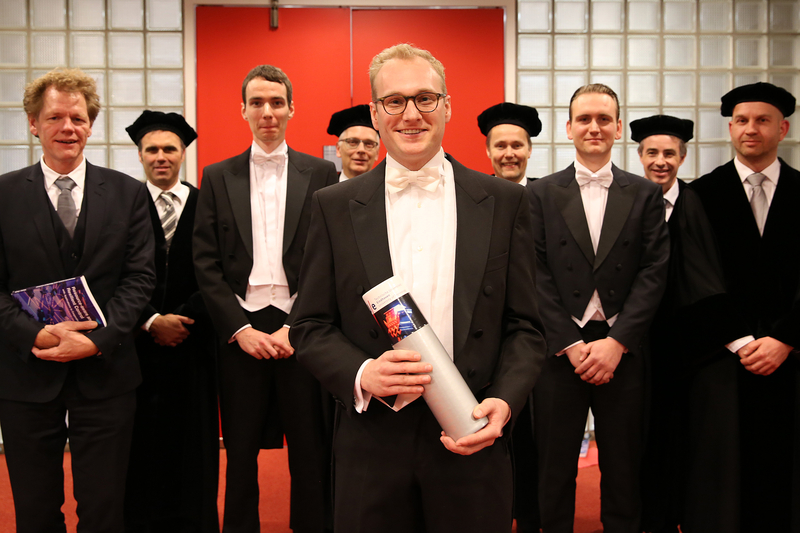
- Research
- 10/11/2017
Cars that communicate only if really necessary
A column of cars able to drive closely behind each other because they can communicate remotely: cooperative driving could very soon be a reality. But a highway full of communicating cars runs the risk of an overloaded network. So Victor Dolk designed a system to let cars communicate only if really necessary. This week he was awarded his PhD with distinction for his work at the department of Mechanical Engineering.
There are many benefits to cars that are able to drive autonomously and closely one behind the other: they are safer, cause no shockwave traffic jams, allow more cars to use the same section of road and cut fuel consumption. The technology for this ‘cooperative driving’, which is actually an extension of the familiar cruise control, is developing so rapidly that its practical implementation is imminent. For truck traffic in particular the huge reduction in fuel consumption makes it an attractive proposition.
A major challenge for such a wireless communication system lies in the risk of overload. Owing to the limited bandwidth, unlimited data traffic is not possible. Overload can lead to delay in the data traffic, and this could have serious consequences, especially for vehicles driving at high speed.
PhD student Victor Dolk therefore designed the basis for a system for cooperative vehicles that limits the communication to those moments that it is really needed – the first researcher to do so. So taking the example of two cars, this moment is only when the lead car accelerates or brakes a little. “The current systems transmit data at set times according to a set schedule,” Dolk explains. “Also when cars are driving at a constant speed and therefore when no communication is necessary. That increases the risk of overload.”
Testing in practice
He has also put the system he designed to the real-life test, in a column of cooperative-driving cars. And the difference with the previous system? “At first sight, none,” Dolk laughs. “But that was also the intention: the systems performed almost exactly the same, but now there was much less communication.”
Dolk was awarded his PhD with distinction on Monday for his dissertation ‘Resource-aware and resilient control with applications to cooperative driving’.He undertook his study at the department of Mechanical Engineering, under the supervision of Maurice Heemels, Jeroen Ploeg and Pietro Tesi (University of Groningen).
Discussion